MGT3001 Governance and Ethics: Theranos Case Study Analysis
VerifiedAdded on 2022/11/11
|11
|614
|328
Presentation
AI Summary
This presentation examines the Theranos case, focusing on the criminal prosecution of the company and its executives for fraud. It begins with an executive summary outlining the charges brought by the SEC against Theranos' leadership for deceiving investors with false technology claims. The presentation then provides a brief history of Theranos, its establishment, and its specialization in various fields. It delves into the details of the case, including Elizabeth Holmes' actions and the company's fraudulent claims. The analysis applies relevant theories, such as property rights, social institution, and stakeholder theory, to understand the ethical implications. The discussion highlights the importance of stakeholder theory, emphasizing the need for companies to act ethically and benefit their shareholders. The presentation concludes by referencing relevant sources and summarizing the key takeaways from the Theranos case, emphasizing the consequences of fraudulent activities in the business world.
1 out of 11

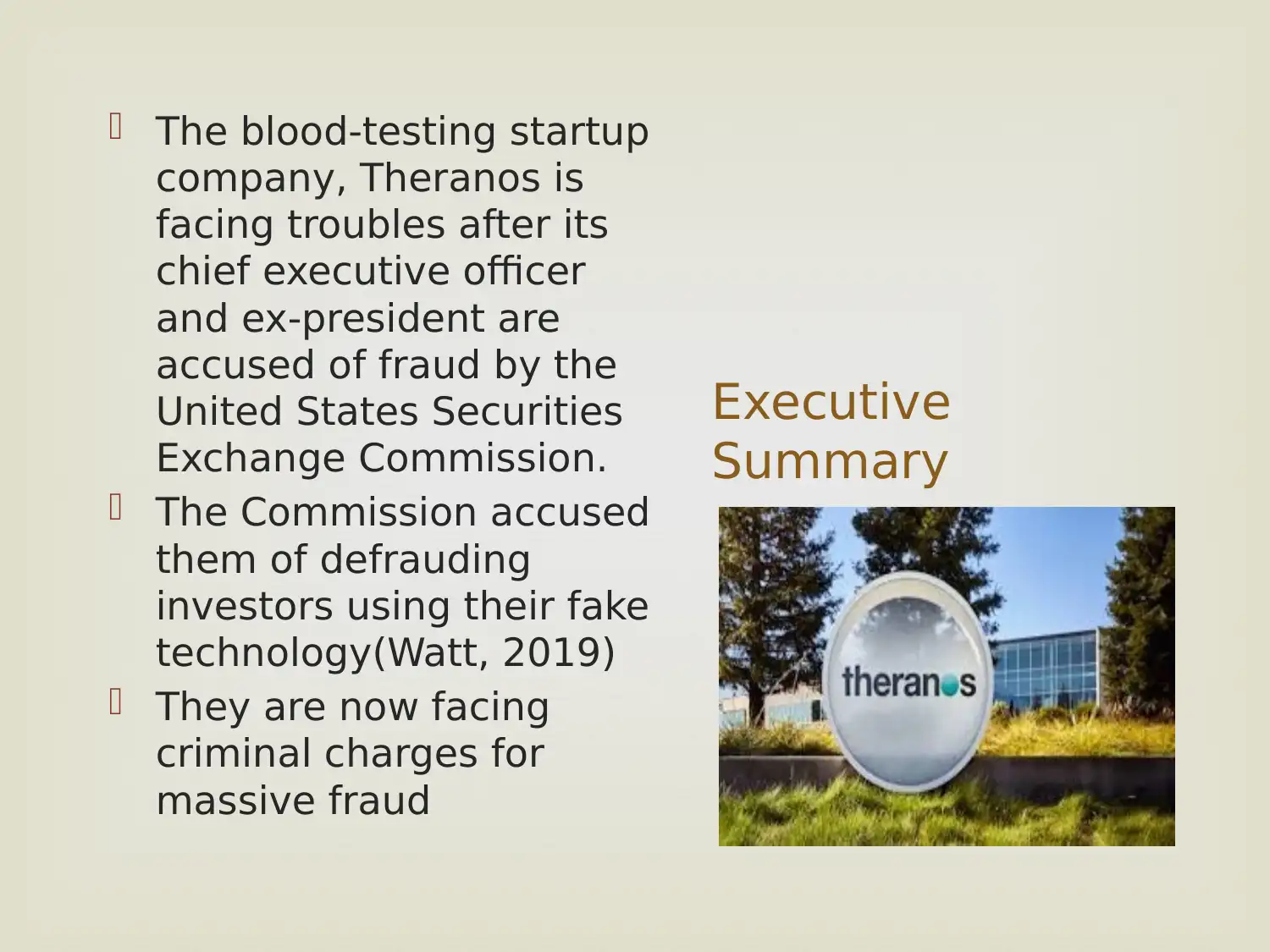
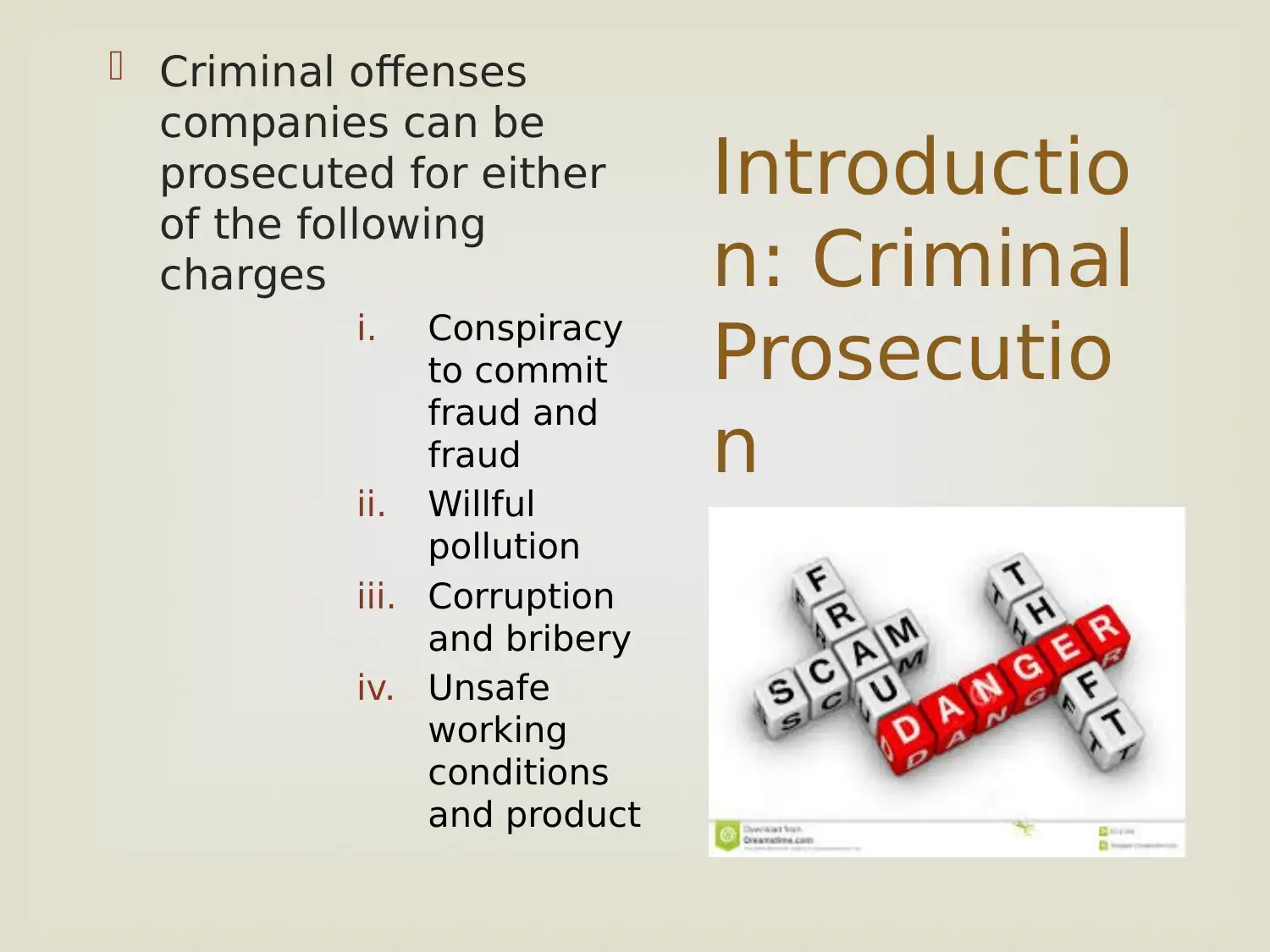

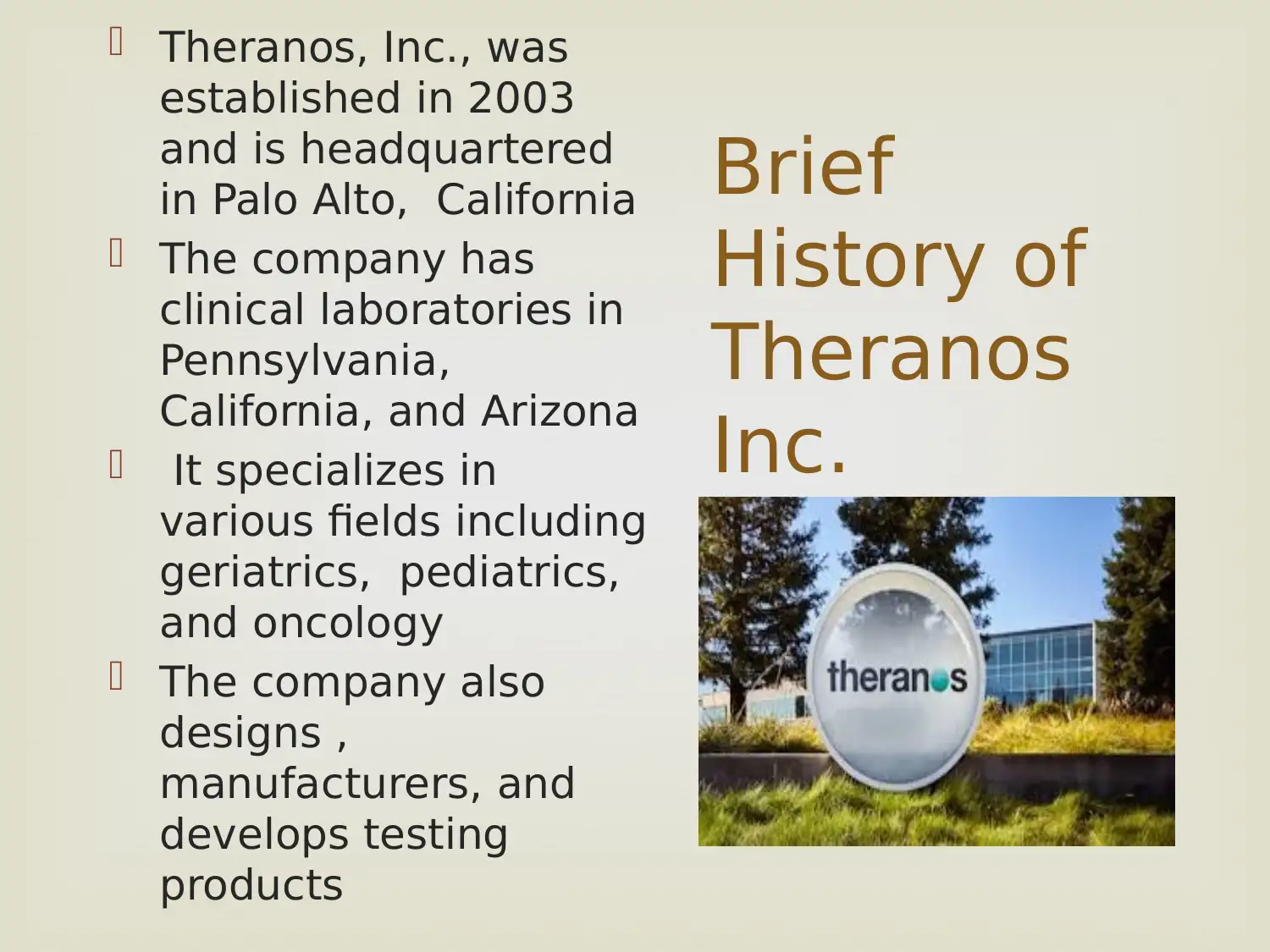
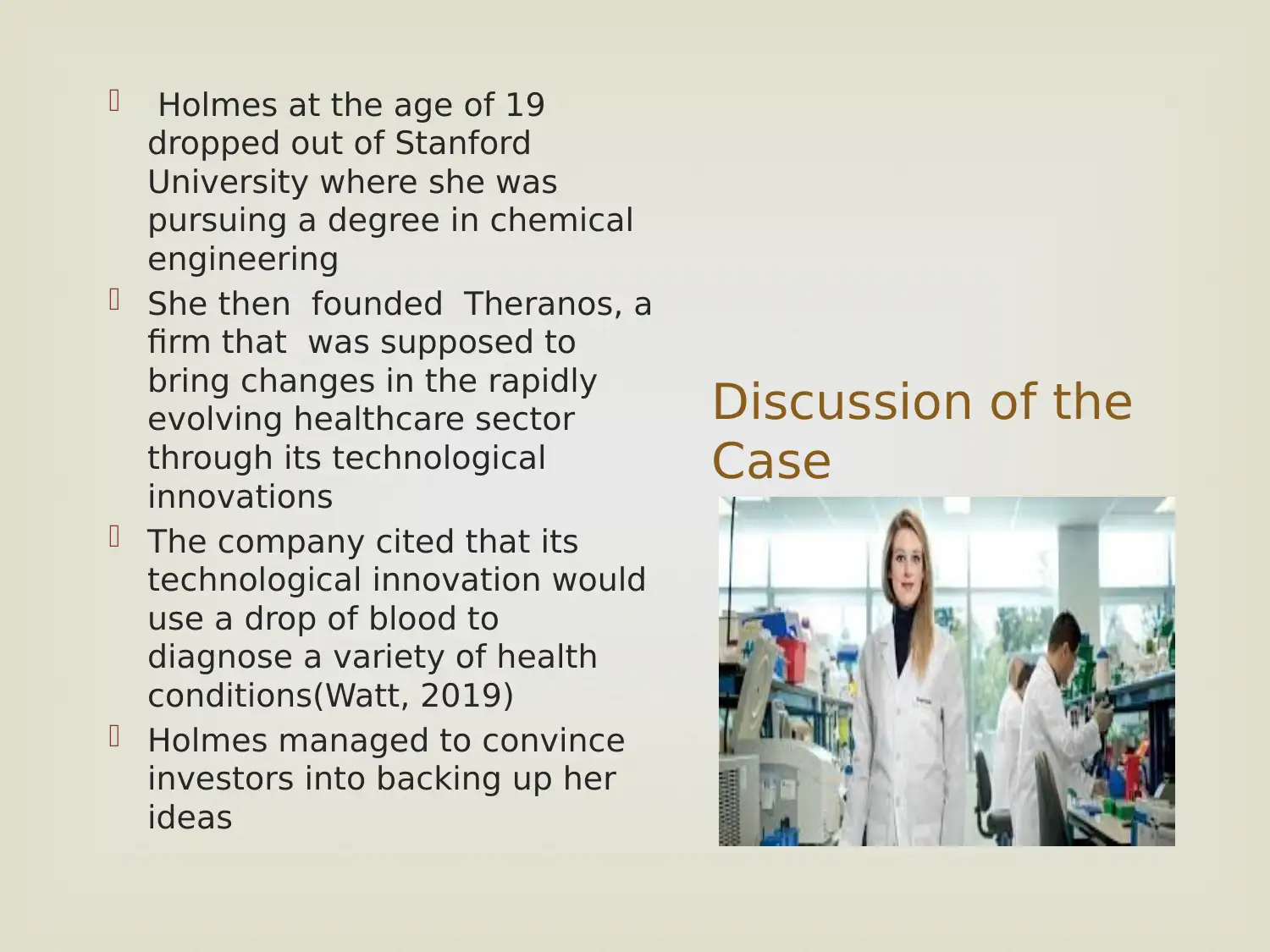
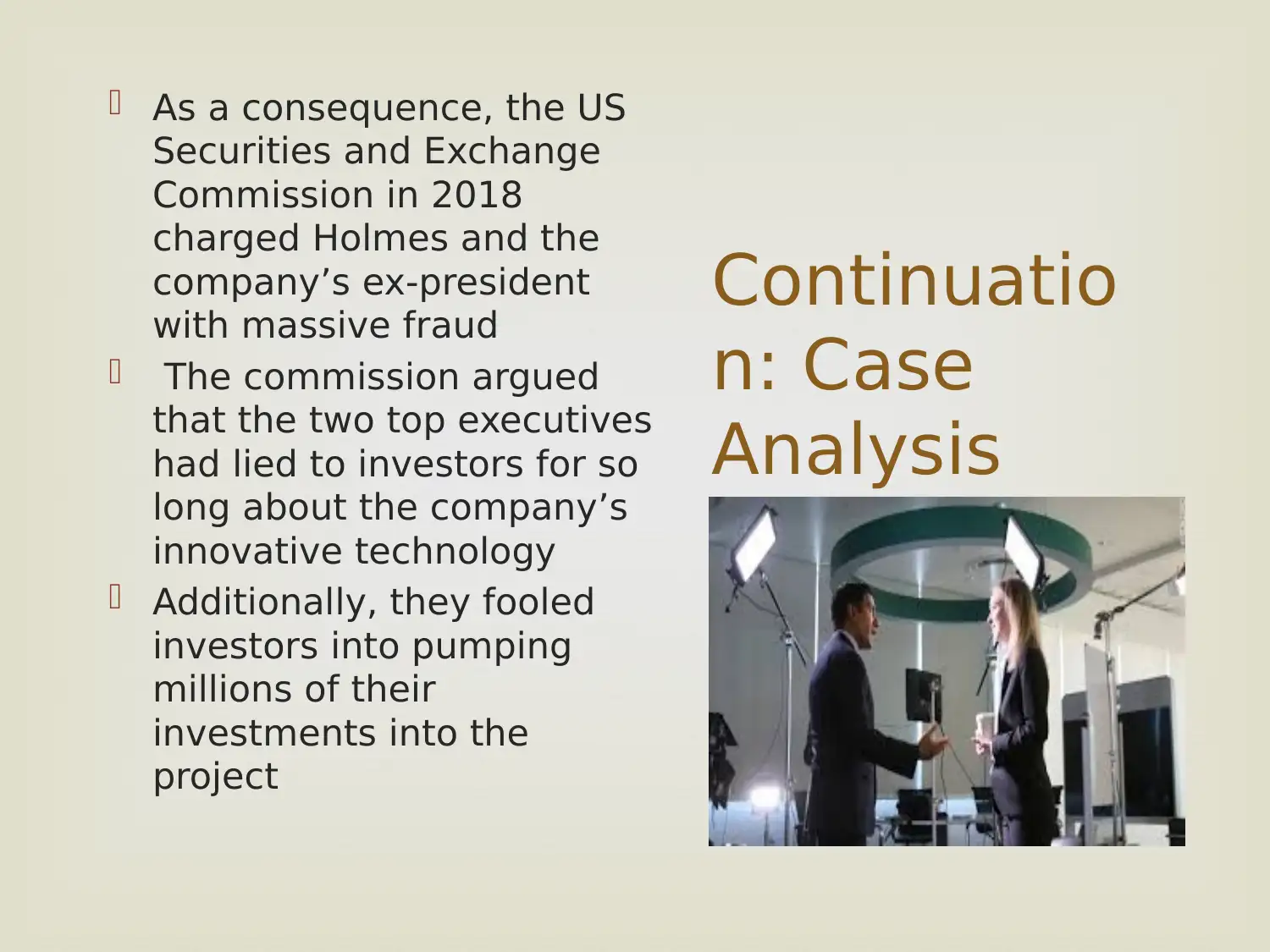
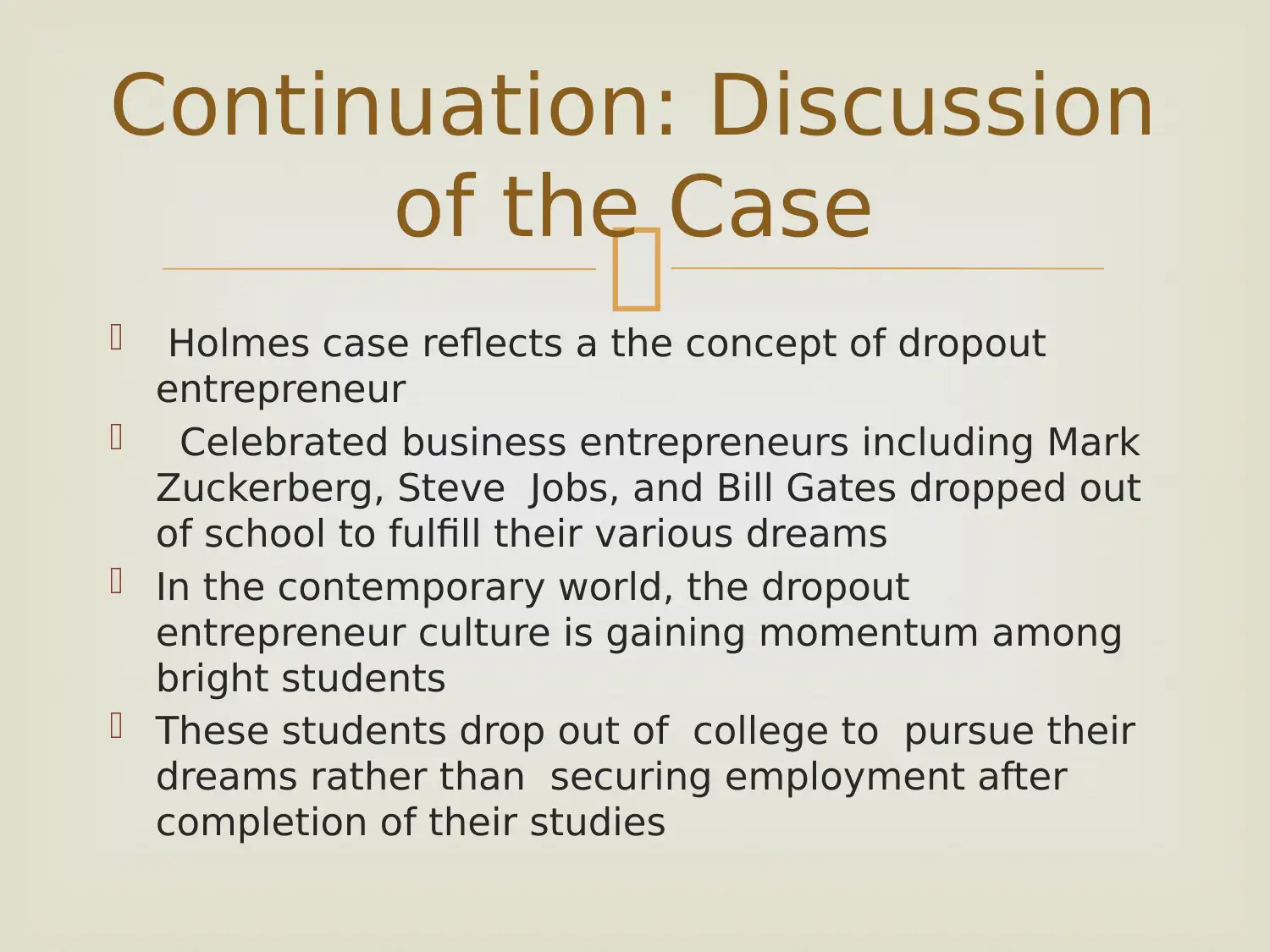
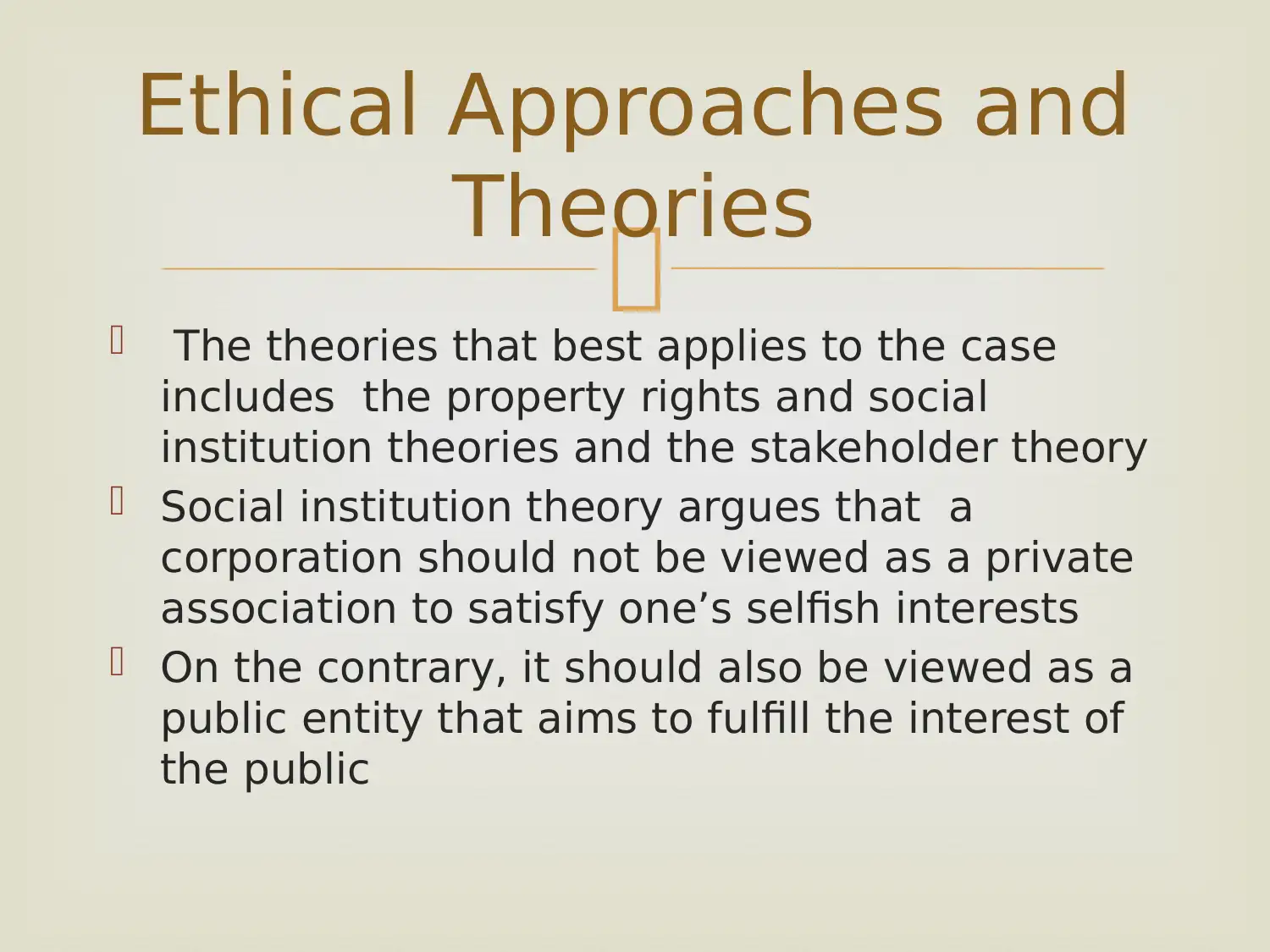
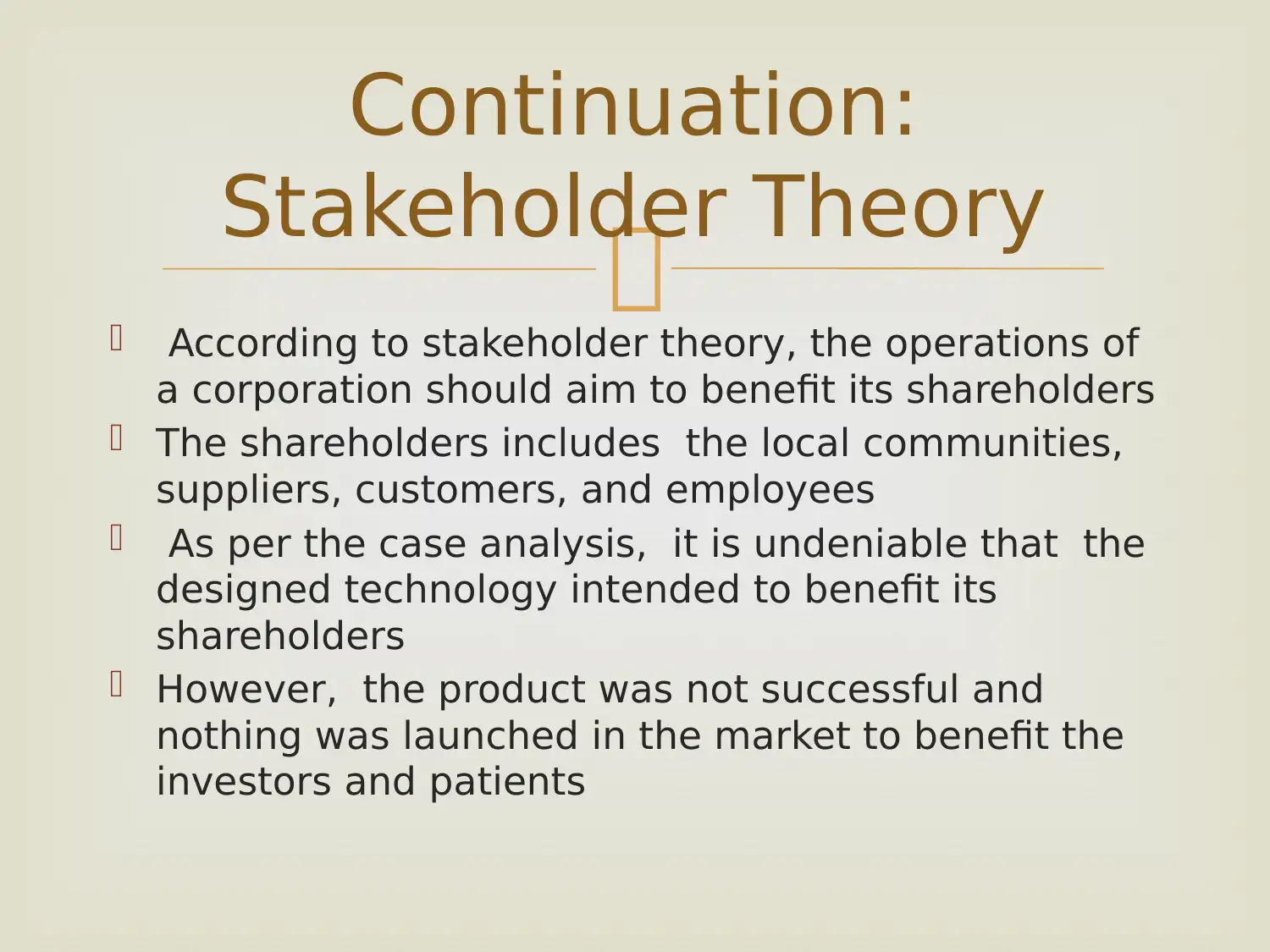
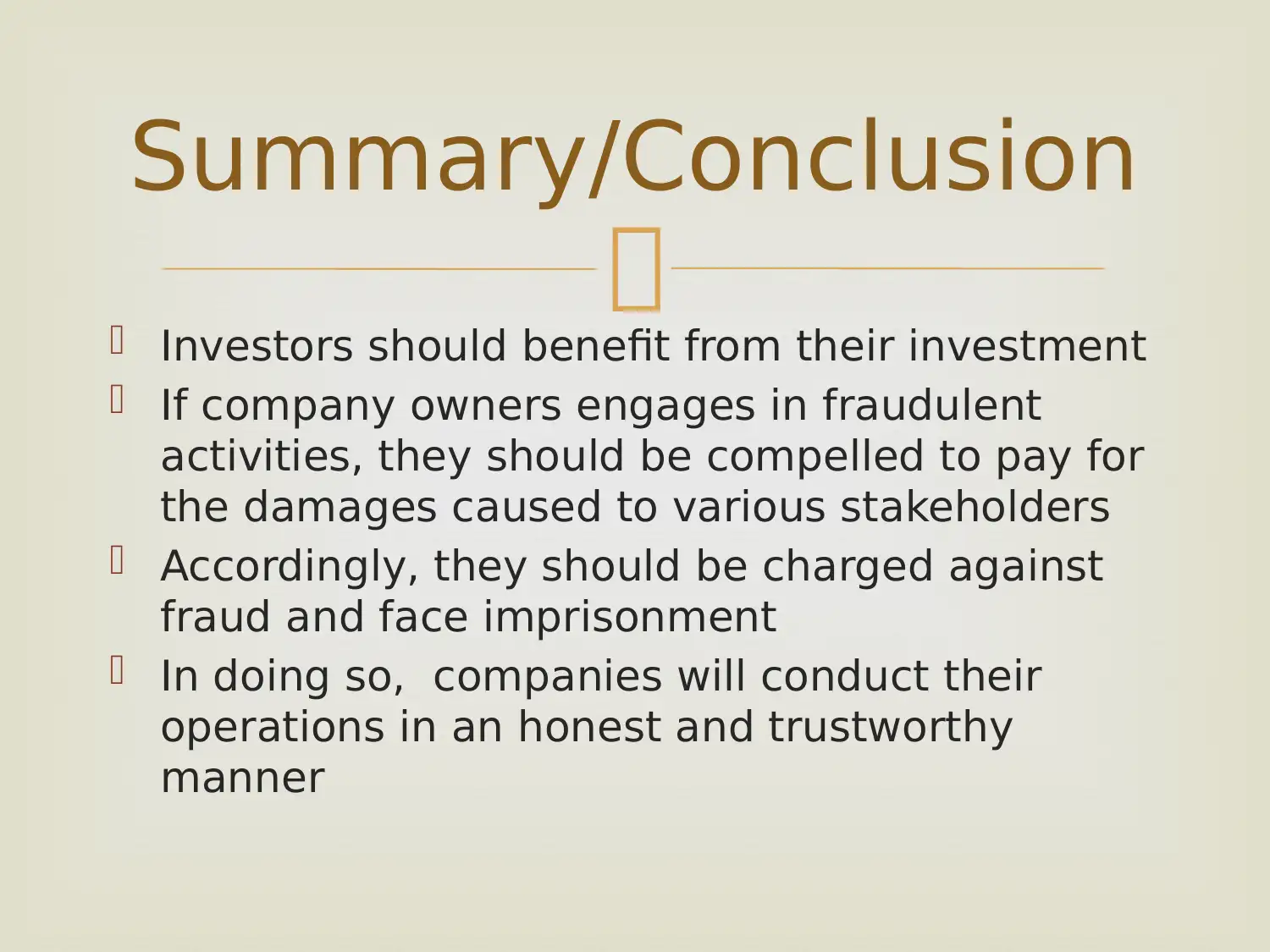
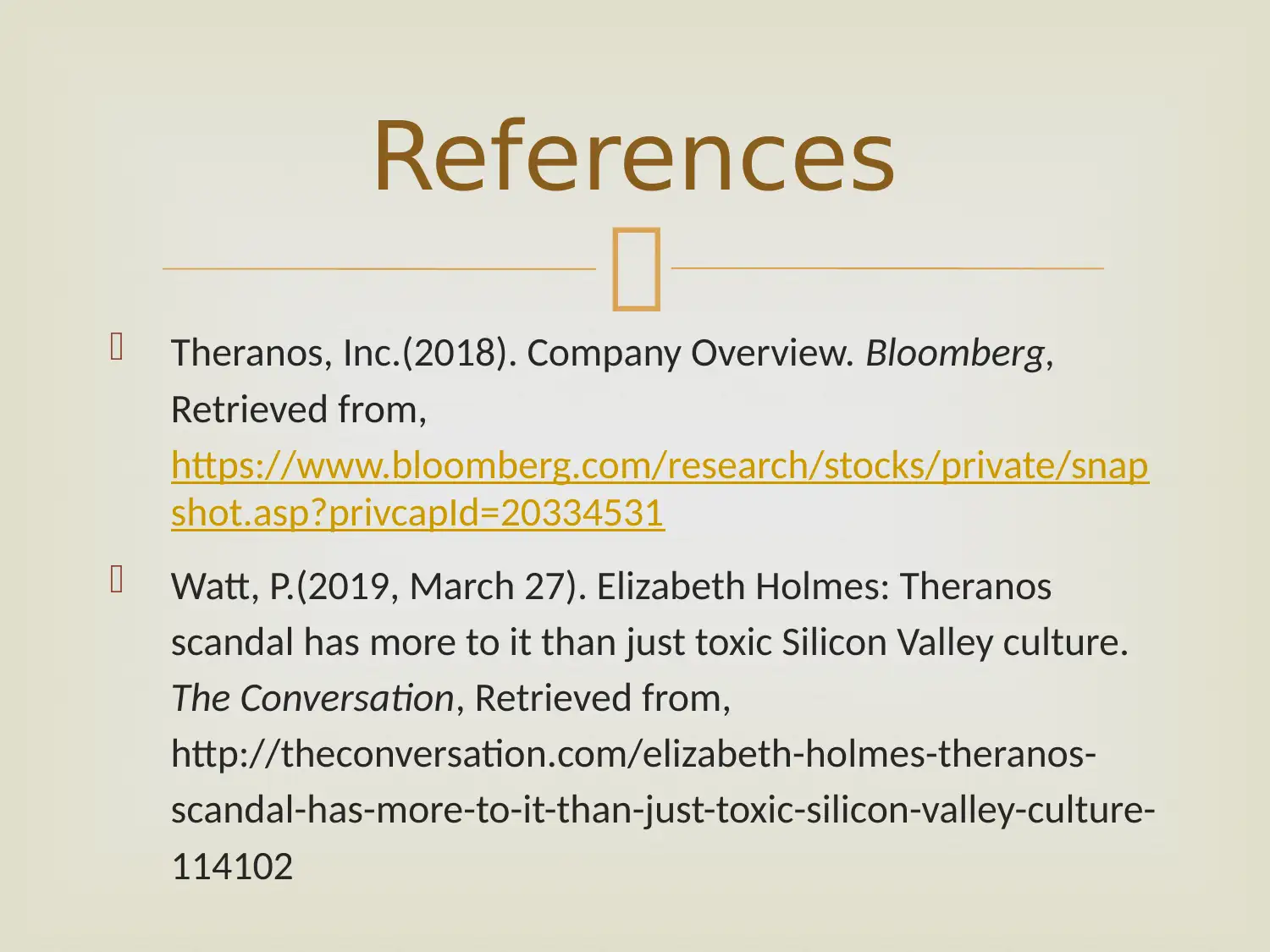
![[object Object]](/_next/static/media/star-bottom.7253800d.svg)